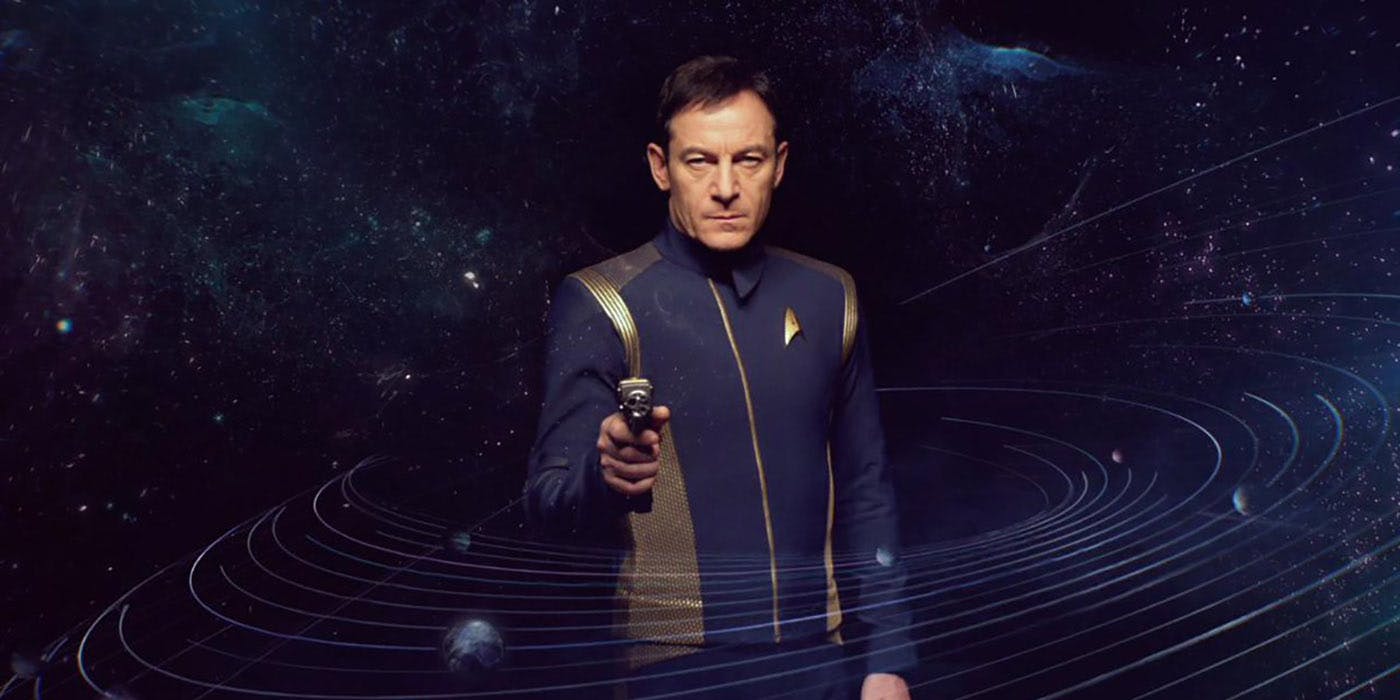‘Star Trek: Discovery’ Challenges Viewers With the Show’s First Unethical Captain

Credit to Author: Matthew Gault| Date: Thu, 19 Oct 2017 14:00:00 +0000
A fire is raging in the Star Trek fan community. Star Trek: Discovery is something fans have waited almost two decades for—a return of their favorite franchise to television. From the moment the show opened people took to the internet to both deride and defend it. Some fans love it, others hate it, and some refuse to even admit it’s Star Trek.
Fans love Star Trek for its clear and hopeful vision of the future. When so much about the modern world seems so terrible and our social problems so insurmountable, the voyages of the Federation offer a comforting glimpse of a possible future—one where disease, poverty, and inequality are a thing of the past.
At least, so we’re told. The Federation—the Earth based ruling body of humanity in the Trek universe—is a morally upright and ethically admirable organization. It’s a utopian vision of the future that’s hard to believe in our hostile reality. The best and most memorable Trek stories know this and create tension by testing the ideals of the Federation against the hostility of an uncaring universe.
That’s what makes Star Trek: Discovery both a great war story and a great Trek TV show. It’s about what happens to the Federation, the prime directive, and this utopian view of the future is put to the test. It reminds us what happens when characters and countries with high ideals lose their way and shows how they might find it again.
The new show follows the crew of the starship Discovery during the early days of the Federation’s war against the Klingons. The timeline takes place roughly ten years before the original series and explores the origins of the enmity between the two empires.
Gabriel Lorca is the captain of the Discovery and he’s the character fans seem to have the most problem with. Kirk was noble, ethical, and promiscuous. Picard was proud yet kind. Sisko was cunning and self-sacrificing. Janeway was a brilliant polymath and loyal to a fault. Lorca is none of those things.
He’s a wartime captain running a kind of black ops Federation ship in hopes of ending the war as quickly as possible. To most of the audience, he’s a monster. “Universal law is for lackeys,” he tells Michael—the show’s main character. “Context is for kings.”
At the end of the most recent episode, he leaves a human behind in Klingon captivity out of spite. He also admits to killing everyone aboard his previous ship to spare them the humiliation of Klingon torture.
Lorca is a bad person, an unethical captain, and probably the long term villain of Discovery. That’s the point. He’s the kind of guy you want in charge during a war and retired once the war is over. He believes that the only way to protect the Federation is to break its rules. He understands that sometimes, in context, you have to sacrifice universal law on the altar of victory.
He’s not the kind of captain Trek fans are used to, but he’s also not unheard of. Every TV show, movie, comic book, and novel based in the Trek universe is full of rogue Federation leaders though they’re usually admirals. It’s a given that if an admiral showed up in Next Generation, they were probably evil or possessed by evil worms.
The classic heroes aren’t perfect either and the best Trek stories are the ones that do exactly what Discovery does on a weekly basis—challenges the ideals of the Federation. That’s the whole premise for Next Generation. The godlike creature Q sends the Enterprise to the far reaches of the universe to see if their utopian ideals will hold up or if they’ll collapse under the pressure and revert to their base nature.
Deep Space 9 was so great because it dealt with heavy issues such as genocide, wartime reconstruction, and chemical weapons. In the Pale Moonlight, one of the most beloved episodes of Star Trek ever aired, shows Sisko willingly betraying the ideals of the Federation to bring allies into a war based on a false flag. Kirk repeatedly broke the prime directive. Spock mind melded a subject against her will to glean information the Enterprise thought would prevent a war. The list goes on and on.
What makes Discovery great is that it’s doing all this in reverse. In previous series, characters break their principles to achieve a goal and have to live with the cost. In Discovery, the characters are already broken. Michael is a mutineer on a life sentence serving time on a black ops ship, trying to prove to herself and the rest of the universe she’s worthy of the Federation. Lorca is an angry man willing to destroy the Federation to save it.
It’s early days for Discovery, but it seems to be telling a story of redemption set during a time of war. These are characters that must claw their way back from the brink to prove they’re worthy of the ideals of the society they’re trying to protect.
That’s why Discovery gives me hope. It shows a path forward for an idealistic society that’s lost its way. I can relate to that. It’s giving me hope in a time when I desperately need it. That’s what Star Trek has always done.